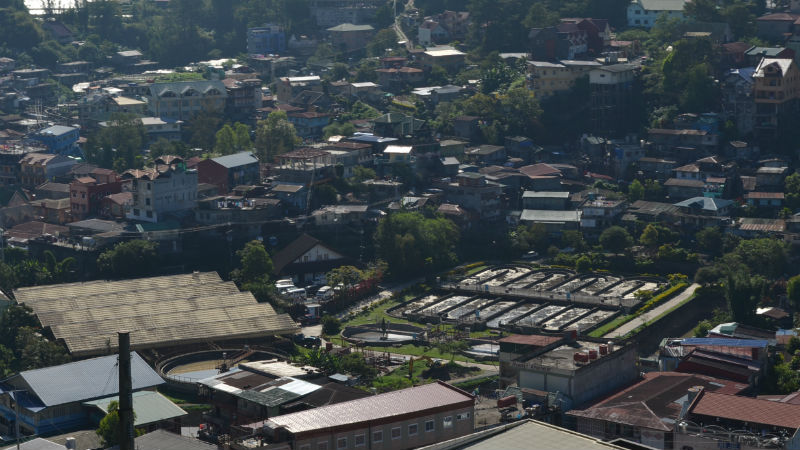BAGUIO CITY – Mayor Mauricio G. Domogan reported the city’s need for additional sewerage treatment plants (STPs) to be built in strategic areas of the central business district to help reduce the volume for waste water being treated by the 32-year old Baguio sewerage treatment plant.
The local chief executive said that concerned offices of the local government discovered that numerous market vendors allegedly dispose their waste in the city’s main sewerage system which is not allowed as this contributes to the overloading of the existing STP in South Sanitary Camp.
He claimed the local government proposes the construction of a separate STP exclusively for the waste from the market vendors, while a separate STP should be built within the vicinity of the slaughterhouse compound to treat the waste from the city’s main abattoir, thereby reducing the volume of water being piped to the existing STP and lessen its burden as this is already operating beyond its prescribed capacity for several years now.
“We already made representations with the public works department to help us source out the funds for the put up of the proposed sewerage treatment plants that will help in enhancing our programs and projects geared towards improving the quality of water being discharged in the city’s major waterways,” Domogan stressed.
According to him, the local government cannot afford to continue putting the burden on the city’s existing STP to treat the waste water from the different parts of the city so it proposes the put up of a separate STP in the public market and another separate STP in the city’s abattoir while awaiting the action of concerned government agencies on the proposal to put up a similar STP within the City Camp Lagoon area.
The city’s existing STP is only programmed to treat over 8,500 cubic meters of waste water daily but it is now being fed with over 12,000 cubic meters of waste water daily overloading the plant beyond its prescribed carrying capacity, thus, the need for concerned government agencies and the local government to work on the put up of similar STPs in strategic areas of the city.
Domogan explained that despite the STP operating beyond its prescribed capacity, the local government has never been issued a notice of violation by the Cordillera office of the Environmental Management Bureau (EMB-CAR) for discharging water beyond the allowable quality of water that should be discharged in the various river systems in the city.
As part of the stop-gap measure to prevent the deterioration of water quality discharged in the Balili river, one of the city’s major river system, the local government put in place de-watering machines to help in treating the waste water being fed to the STP for treatment before discharging the treated water to the river.
He appealed to market vendors not to directly dump their waste water and other solid waste to the city’s main sewerage system to prevent clogging and unnecessary problems that will significantly affect the treating capacity of the STP which could result to the discharge of waste water beyond the prescribed quality of water to some major river systems.
By Dexter A. See














